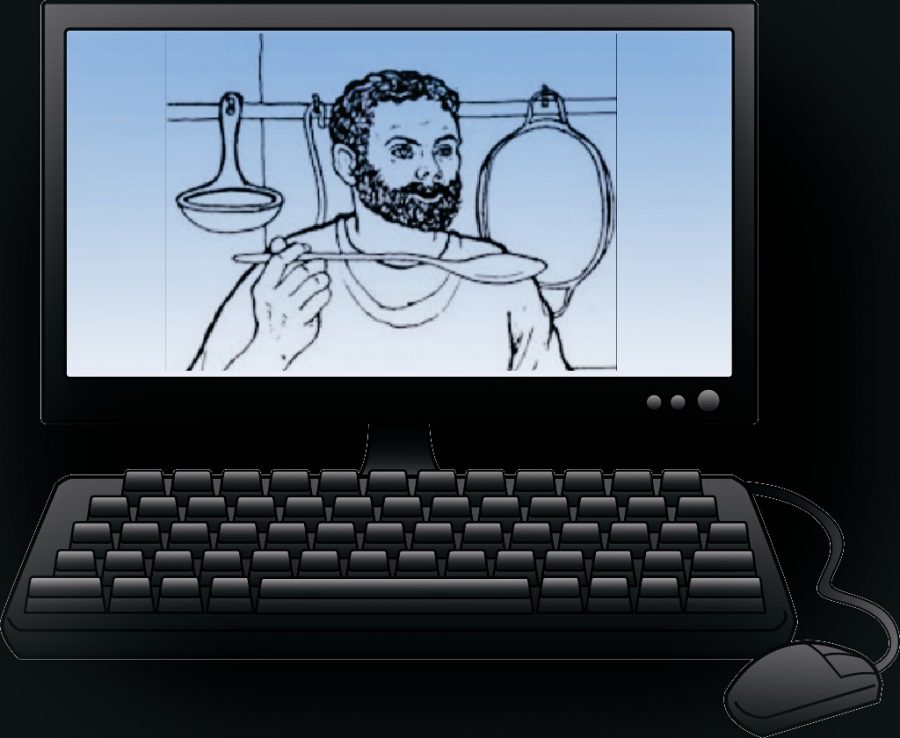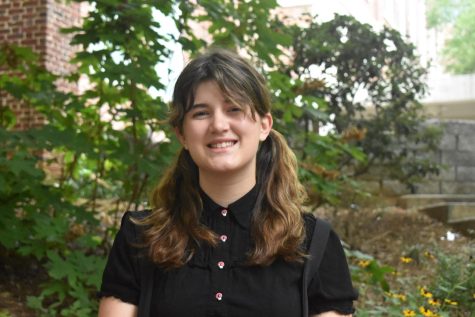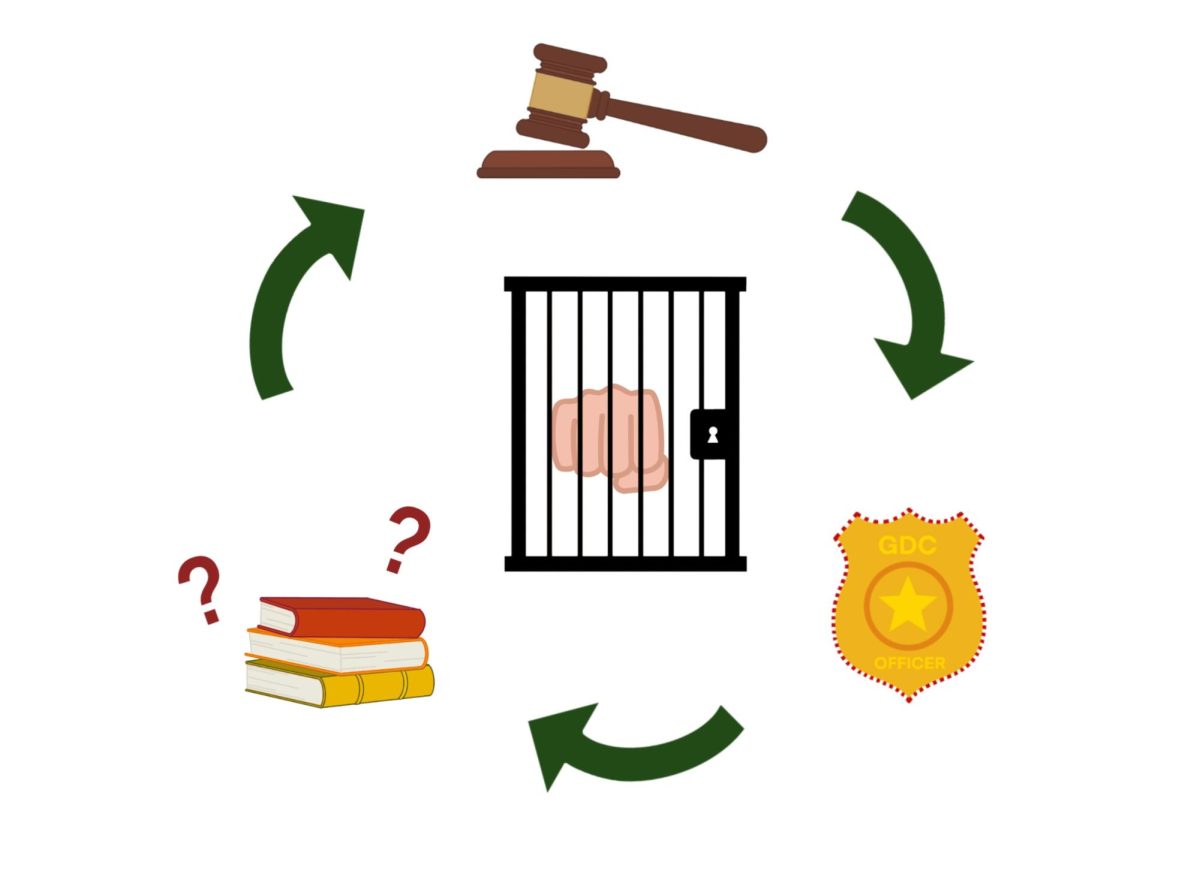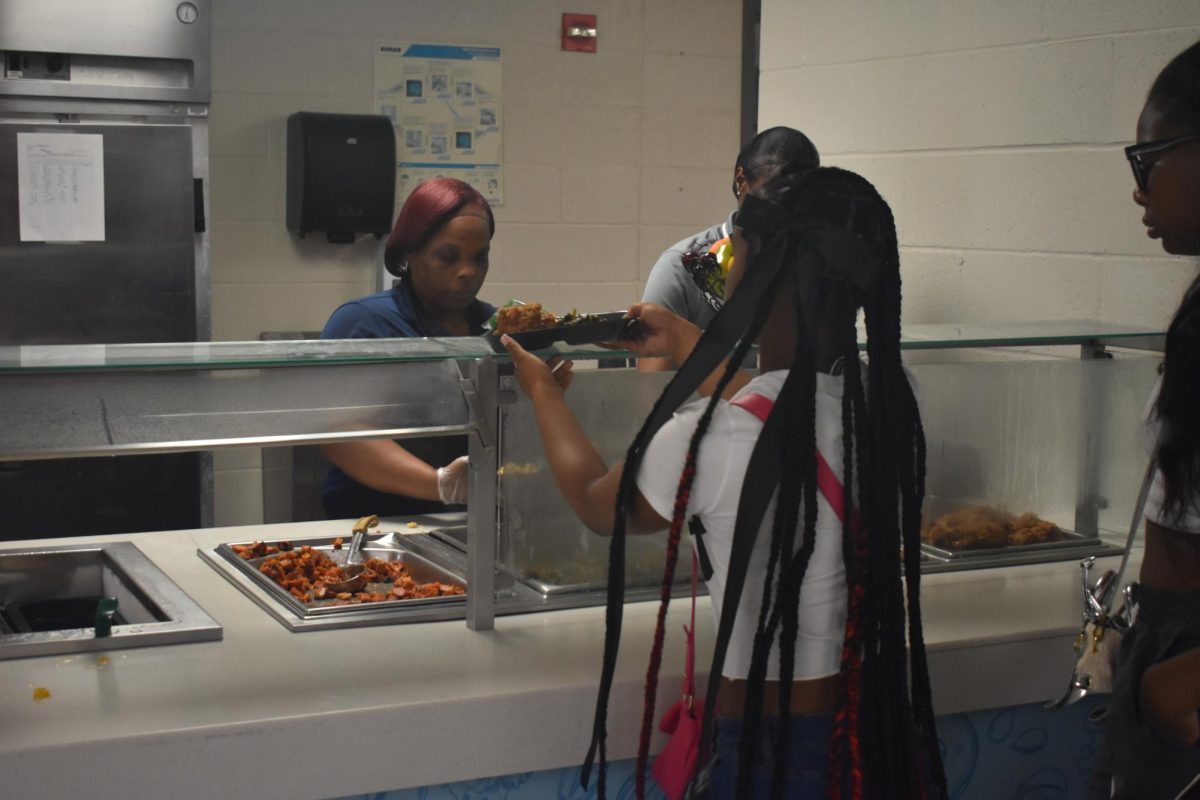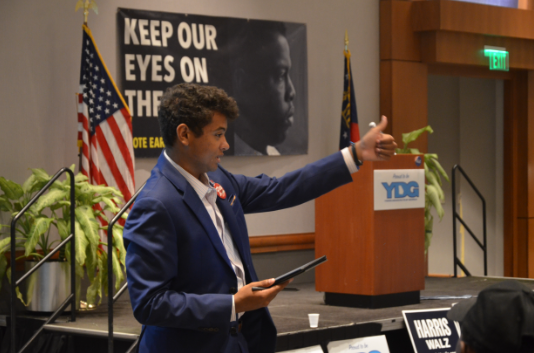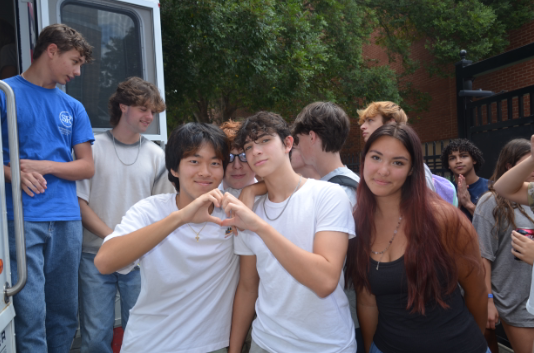The struggles of Latin during Covid
A picture of Grumio, a popular character from the Cambridge Latin textbooks, is shown on a computer screen. (credits for Grumio’s image go to the Cambridge Latin Course textbook series).
November 12, 2020
The Grady Latin program is popular. However, the coronavirus has left new and old Latin students without the in-person Latin experience.
During the Covid-19 pandemic, the methods teachers and students use to teach and learn have changed. The Latin program’s two teachers and over 300 participants have had to transition to a nearly completely online format. Latin is hard to teach and learn any time, but when online, students can’t get the same in-depth explanations on the many facets of the program at the same quality a classroom offers.
For some students, Latin in the virtual world is challenging.
“I kind of struggled during the spring,” said junior Lina Fretwell, a five-year Latin student who will be taking AP Latin second semester. “I had trouble translating passages because our teachers couldn’t clearly express concepts, or at least not as clearly as they could when we were in-person.”
Fretwell is glad to see improvements in the virtual learning environment. In the spring, most classwork was completely independent, unlike current classes where daily Zoom calls or Google Meets are the norm.
“If we had really gotten on a Zoom call and been instructed, I wouldn’t have felt like I was falling behind so much,” Fretwell said.
While many classes can be taught without a textbook, Latin courses at Grady are almost completely reliant on the Cambridge Latin Course textbooks. Most students have physical copies and the textbooks determine almost all of students’ work.
Sophomore Dean Barry, a current Latin II student, notices that this class requires more physical writing and worksheets rather than entirely digital assignments. “It’s a very practical sort of thing,” Barry said.
Latin is often referred to as a “dead language” because it isn’t spoken commonly anymore.
Latin teacher Scott Allen recognizes the language’s perception presents a unique barrier to learning.
“I think just face-to-face, the way modern languages are taught is very different from Latin,” Allen said. “We don’t necessarily spend very much time speaking Latin or writing Latin, but those are obviously two skills that the modern languages work on quite a bit.”
Barry also takes French and has noticed these differences when he had the classes simultaneously last year.
“French might have been a little less varied, but it made up for that in terms of more sort of French culture stuff because it’s sort of hard to do Latin culture without just doing Roman history, which isn’t as colorful,” Barry said.
A common concern for many classes is maintaining academic integrity.
“Our entire textbook is available online,” said Amy Leonard, who has taught Latin at Grady for 16 years. “The story translations are all online, which means when I make assignments, I kind of have to hope that students aren’t looking at those things, but I don’t have a lot of control over whether they do or not.”
Students share these concerns as well. Barry said it’s easy to be academically dishonest in the virtual world.
“What I don’t like are the new quiz format things, because it’s really easy to cheat,” Barry said. “They’re open note, but they’re just really time-consuming; so, that’s one thing that can’t really translate as well into Covid life.”
Both teachers notice students struggle with the open-note nature of the class in the virtual environment.
“Vocabulary memorization, grammatical form memorization, has because of the open-note, open-text nature of the course, really just had to be sidelined,” Leonard said.
Another common issue in virtual classrooms is a lack of a sense of community. Latin’s usually vibrant in-person community has struggled. Latin Club can’t meet in person and Latin Con, the annual gathering of the Georgia Junior Classical League, was cancelled in the spring.
“I think any time that you are teaching a language, it’s so important to have warm bodies in front of you,” Allen said. “I just miss having the human interactions and watching students kind of feed off of each other in a positive way where somebody will say something in class, then it will prompt somebody else.”
Even with the challenges, teachers and students are making the most of their situations.
“I think she (Leonard) did a good job of giving us videos that we could watch and not just assigning worksheets every day,” Fretwell said.
Students see some changes for the better.
“I like how it’s sort of dynamic,” Barry said. “There’s websites like Peardeck (an interactive slideshow tool) and all sorts of other stuff that we use.”
Leonard said the new tools have helped her as well.
“There’s a silver lining to everything,” Leonard said. “ I probably wouldn’t have used them before, but I’m using them now.”
The struggles Latin is facing now will not last forever, and for now, the language will do what every class at Grady is doing: their best to keep learning.

